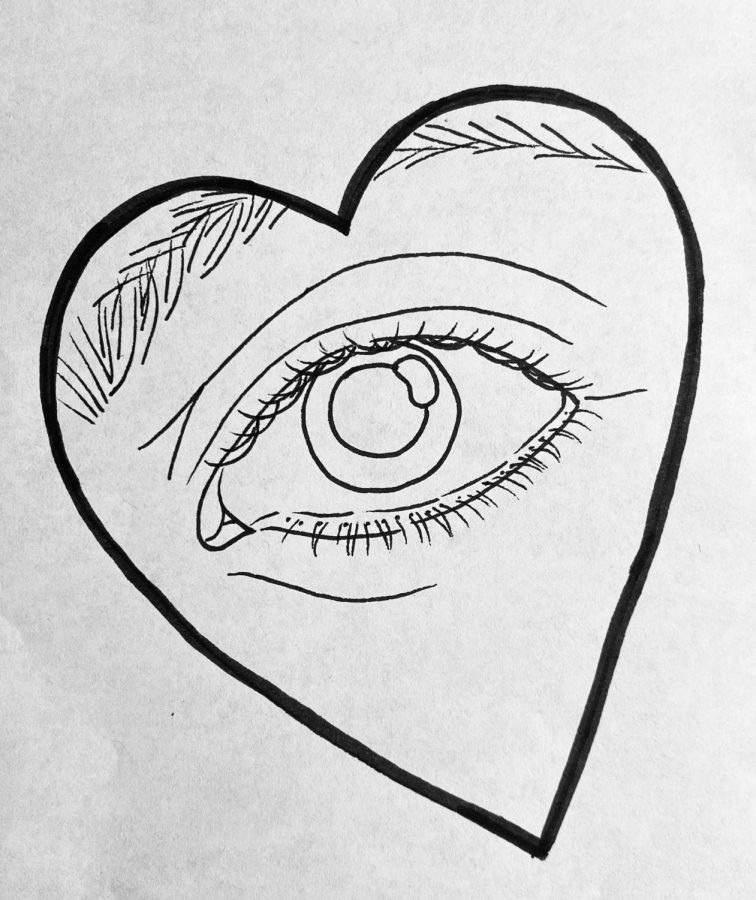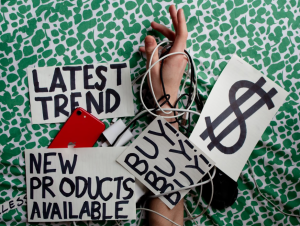Capitalism, Feminism, and the Internalized Male Gaze
January 3, 2022
“The World has lost its soul, and I my sex.” This sentiment from Germaine Greer in the radical feminist canon The Female Eunuch encapsulates the spirit of the second-wave feminist movement of the 1960s and 1970s. In Greer’s view, embracing one’s sexuality was the most powerful means of battling the patriarchy. I challenge that in today’s context.
Currently, Roe v. Wade, our right to abortion under the Constitution, faces annihilation by the Supreme Court. Simultaneously, corporations have co-opted Greer’s once-radical approach and twisted it into a more subversive form of patriarchy. Social media puts a metric of “likes” to our faces and bodies and algorithmically prioritizes the most unrealistically attractive. Stars sell corsets and skinny tea to teenagers, cosmetic surgery thrives, and the roulette wheel of women’s body types trends spins faster than ever. Our generation is not to blame for how capitalism and years of focus-grouped strategy have co-opted feminism. However, we’re ultimately the ones conflating sexual liberation with purchasable, repackaged, patriarchy. Corporations do not have the plight of feminism in mind when marketing clothing or commodities as a means of potential liberation. Looking inward—particularly at our internalized male gaze—can help us identify how our feminism is powered by consumerism, and why the patriarchy is so hegemonic.
The term “male gaze” was coined by film critic Laura Mulvey on the use of women in film as attractive accessories to male leads rather than complex characters. The male gaze encompasses the objectification and sexualization of women in media—not just in film. Subsequent feminist critique has posited that this gaze is so ubiquitous it’s internalized. One performs unwittingly for men at all times—not just while around them.
This concept may seem nebulous, but when I think of how I perceive myself, I can’t help but wonder: Why does my confidence in my gender require on-trend, flattering outfits? Or makeup? Perhaps this Margaret Atwood quote from The Robber Bride sheds light on the internalized male gaze: “Male fantasies, male fantasies, is everything run by male fantasies? … Even pretending you aren’t catering to male fantasies is a male fantasy: pretending you’re unseen, pretending you have a life of your own, that you can wash your feet and comb your hair unconscious of the ever-present watcher peering through the keyhole, peering through the keyhole in your own head, if nowhere else. You are a woman with a man inside watching a woman. You are your own voyeur.” In a digital age where social media memorializes your appearance in a gallery for everyone to see, it’s hard to resist the urge to look picture-perfect while rejecting the male gaze.
Investigating why one feels more relaxed in presenting and adhering to standards set by men and corporations (even without a present “male” audience) is a valuable practice. The internalized male gaze complicates the notion that sexual liberation, under capitalism, is driven by purely feminist motives. As activist and writer Audre Lorde so eloquently put it: “The master’s tools will never dismantle the master’s house.” In other words, we cannot buy our way out of the patriarchy.
This piece also appears in our December 2021 print edition.









